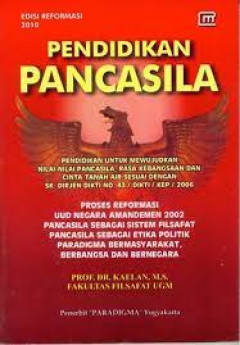Filter by
Found 49 from your keywords: author="Dr. Somawijaya , S.H., M.H"
# /var/www/slims9/lib/SearchEngine/SearchBiblioEngine.php:685^ "Engine ⚙️ : Idoalit\SlimsEnterprise\LibraryManagement\UlimsSearchEngine"
^ "SQL ⚒️"
^ array:2 [ "count" => "select count(sb.biblio_id) from search_biblio as sb where sb.opac_hide=0 and ((match (sb.author) against (:author in boolean mode)))" "query" => "select sb.biblio_id, sb.title, sb.node, sb.node_id, sb.author, sb.topic, sb.image, sb.isbn_issn, sb.publisher, sb.publish_place, sb.publish_year, sb.labels, sb.input_date, sb.publish_year, sb.edition, sb.collation, sb.series_title, sb.call_number from search_biblio as sb where sb.opac_hide=0 and ((match (sb.author) against (:author in boolean mode))) order by sb.last_update desc limit 50 offset 0" ]
^ "Bind Value ⚒️"
^ array:1 [ ":author" => "'+\"Dr. Somawijaya , S.H., M.H\"'" ]

IMPLICATIONS OF CORRESPONDENCE INFERENCE ATTRIBUTION THEORY & BEHAVIORAL JU…
Introduction: This article analyzes the implications of the attribution correspondence inference theory and whether the urge of conscience as affect in the Defendant is the reason for the abolition of the sentence? also behavioral jurisprudence theory on judges' considerations, where it's often a discourse in Indonesia. It is necessary to explore the human values contained in Defendant. P…
- Publish Year
- 2022
- Edition
- -
- ISBN/ISSN
- -
- Collation
- xi, 23 hal
- Series Title
- -
- Call Number
- 017/2022

Indonesia and the Aircraft Lease Implementation in its Airlines Amid Covid-19…
Indonesia and the Aircraft Lease Implementation in its Airlines Amid Covid-19 Pandemic: a Perspective from Investment Law
- Publish Year
- 2021
- Edition
- -
- ISBN/ISSN
- -
- Collation
- 47 hal, 30 cm
- Series Title
- -
- Call Number
- 014/2021

VERBINTENISSEN RECHT : HUKUM PERIKATAN DAN ANEKA PERJANJIAN
- Publish Year
- 2017
- Edition
- Pertama, 2017
- ISBN/ISSN
- 978-602-50023-0-4
- Collation
- viii, 104 hlm.; 14 x 21 cm
- Series Title
- Hukum Perikatan dan Aneka Perjanjian
- Call Number
- 346.02 Nug V.1
- Publish Year
- 2017
- Edition
- Pertama, 2017
- ISBN/ISSN
- 978-602-50023-0-4
- Collation
- viii, 104 hlm.; 14 x 21 cm
- Series Title
- Hukum Perikatan dan Aneka Perjanjian
- Call Number
- 346.02 Nug V.1

PEDOMAN ILMU : KEDOKTERAN FORENSIK
- Publish Year
- -
- Edition
- -
- ISBN/ISSN
- 978-602-200-769-2
- Collation
- 396 hlm, 18 cm
- Series Title
- -
- Call Number
- 614.1 MUN k
- Publish Year
- -
- Edition
- -
- ISBN/ISSN
- 978-602-200-769-2
- Collation
- 396 hlm, 18 cm
- Series Title
- -
- Call Number
- 614.1 MUN k

PEMBENTUKAN UNDANG-UNDANG DAN PERDA
- Publish Year
- 2011
- Edition
- I, Cet. 1, Juni 2011
- ISBN/ISSN
- 978-979--769-357-2
- Collation
- xxviii, 250 hlm., 21 cm
- Series Title
- -
- Call Number
- 348.01 Ahm P
- Publish Year
- 2011
- Edition
- I, Cet. 1, Juni 2011
- ISBN/ISSN
- 978-979--769-357-2
- Collation
- xxviii, 250 hlm., 21 cm
- Series Title
- -
- Call Number
- 348.01 Ahm P